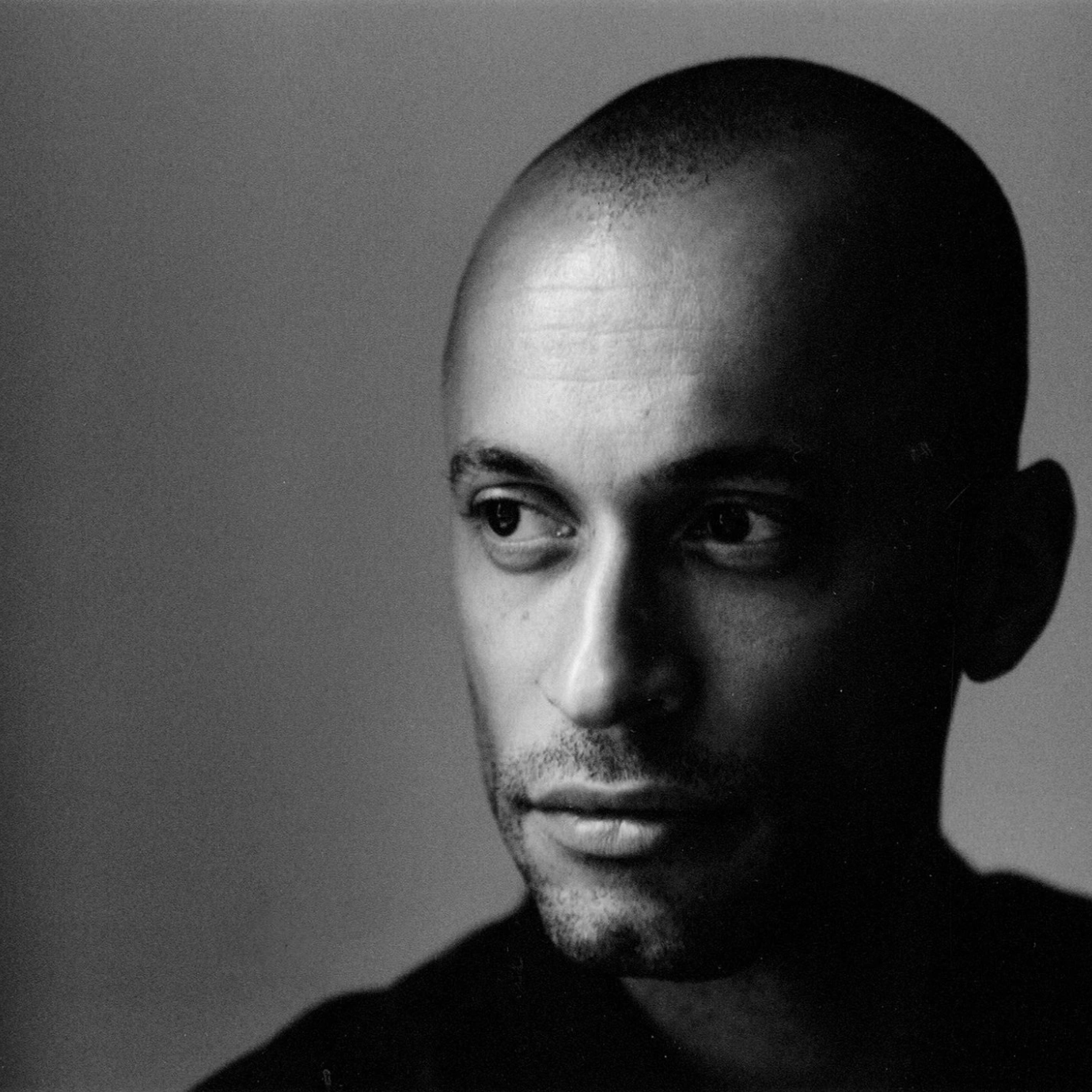Maaza Mengiste. Photo: Nina Subin The longlist for the 2020 Booker Prize has been announced. Hilary Mantel, who won the prize for each of the first two volumes of her Thomas Cromwell trilogy, has also been nominated for the third volume, The Mirror the Light. (No author has even won the Booker Prize three times.) Other nominees include Kiley Reid for Such a Fun Age, Brandon Taylor for Real Life, Anne Tyler for Redhead by the Side of the Road, and Maaza Mengiste for The Shadow King. At Columbia Journalism Review, Susana Ferreira writes about how the global pandemic
Clint Smith Poet and essayist Clint Smith will start as a staff writer for The Atlantic in September. Following the recent repeal of a New York state law regarding the secrecy of police disciplinary records, ProPublica has launched a new searchable database of civilian complaints against NYPD officers. The records document misconduct allegations against 3,996 active-duty officers, spanning from September 1985 to January 2020. The former staff of Deadspin, who quit last year in protest of a “stick to sports” mandate from the site’s bosses, have started a new company, Defector Media. They will begin with a podcast in
Keeanga-Yamahtta Taylor. Photo: Don Usner New Yorker editor in chief David Remnick announced in a staff memo that the magazine has hired Keeanga-Yamahtta Taylor as a contributing writer and Sheldon Pearce as a music writer. Taylor, who is a professor in the department of African American studies at Princeton and the author of Race for Profit: How Banks and the Real Estate Industry Undermined Black Homeownership (a finalist for the Pulitzer Prize), has been writing for the New Yorker about “COVID and its devastating effects on Black communities and the quest to transform America.” Pearce has been a contributing
Atossa Araxia Abrahamian. Photo: Victor Jeffreys II Atossa Araxia Abrahamian is writing a new book, The Hidden Globe, to be published by Riverhead. On Tuesday, July 28th, Indiana University’s Arts and Humanities department will continue their series of panels, “Confronting Racism,” with a session on social justice and incarceration, featuring Clint Smith, Michael Harriot, Leah Derray, Kyra Harvey, and Brooke Harris. On Wednesday, July 29th, n+1 is hosting an online discussion about COVID-19 in state prisons. The panel will feature Sarah Resnick, Anthony Dixon, Michelle Lewin, and Jose Saldana. BuzzFeed has laid off fifty of seventy-four staff who had
Cover of Polish Shadow (2006) by Rosalind Fox Solomon In Jewish Currents’s spring issue, Zoé Samudzi profiles photographer Rosalind Fox Solomon in “A Journey Into the Heart of Whiteness.” Fox Solomon, a ninety-year-old artist who has been taking pictures for five decades, often took white families as her subject. Though her work frequently captures casual, everyday scenes, they can feel disquieting. As Samudzi observes, Fox Solomon “Draws to the surface an underlying menace, making visible the violence of the purity politic and the social obligation to blood and country that cement the white family bond.” The Nieman Foundation for
E. Tammy Kim At Columbia Journalism Review, E. Tammy Kim reflects on turning away from US coverage of COVID-19 (“myopic at best and racist at worst”) and toward online “transnationally Asian” magazines published in English. “Their orientation is not so much postcolonial as anti-nationalist and internationalist,” Kim writes of outlets like Lausan, New Bloom, and New Naratif, “meaning that they’re keener to explore what’s shared between working people in say, Taipei and Los Angeles, or Bangkok and Davao City, than to ask whether Canada or Vietnam has the more capable government—a temptation of traditional journalism.” And with the Black
Keeanga-Yamahtta Taylor. Photo: © Don Usner Political commentator Michael Brooks has died at the age of thirty-seven. As the host of The Michael Brooks Show on YouTube, he was known for his comedy, empathy, and sharp political analysis. On Twitter, the tributes have been pouring in. At Jacobin, Bhaskar Sunkara remembers his colleague and friend: “[A] dream of a vibrant community nurturing left media was fundamental to Michael’s work. Not because he aspired to be an ‘influencer’ with a large individual platform, but because he knew how important it was to build the kind of bonds that you can’t
Rep. John Lewis in 2006. Photo: US Congress/Wikimedia Commons Barack Obama, Joe Biden, Nancy Pelosi, and many others are paying tribute to John Lewis, the Civil Rights leader and Georgia congressman who died on Friday. On Twitter, political correspondent Alex Burns calls attention to a passage from David Halberstam’s The Children, in which one subject interviewed states that Lewis’s words “might have well been carved in granite.” “That young man is pure of heart.” Here is a video in which a deeply moved Lewis accepts the National Book Award for Young People’s Literature in 2016 for the graphic memoir
Michelle Obama. Photo: © Miller Mobley The Literary Arts Emergency Fund will provide $3.5 million in one-time grants to publishers and literary organizations. The fund is supported by the Andrew W. Mellon Foundation, and was spearheaded by the Academy of American Poets, the Community of Literary Magazines and Presses, and the National Book Foundation. At ProPublica, an investigation into Facebook’s claim that they do not allow misinformation about voting on the site: “False claims, including conspiracy theories about stolen elections or outright misrepresentations about voting by mail by Trump and prominent conservative outlets, are often among the most popular
Rakesh Satyal. Photo: Dbrancazio/Wikicommons At Electric Lit, Eva Rosen offers a reading list of books on housing inequality. Rosen, author of The Voucher Promise, notes that this form of discrimination is pervasive in America and has many consequences: “Housing drives all sorts of disparities in the U.S.: health, wealth, education, employment, exposure to the criminal justice system, even happiness. Yet, where we live is no accident: It is the result of decades of laws, policies, practices that inscribed the blueprint for racial and social inequality across the nation.” Novelist and editor Rakesh Satyal has been named executive editor at
Josie Duffy Rice Namwali Serpell looks at photographer Ming Smith’s portraits of Afrofuturist poet and musician Sun Ra, and the challenges of their work. “These two artists dare us to reimagine black identity—that is, human identity—from the groundless ground up, as an order of being that stutters in and out of nonbeing, that dissolves and gathers itself and others, in turn, in time. Did Sun Ra truly believe he had once been transmolecularized to Saturn? Did he really want to save black people by sending them to outer space? Was he some kind of intergalactic Marcus Garvey, who sold
Damon Young. Photo: Sarah Huny Young According to the Washington Post’s “Fact Checker” column, Donald Trump has now made more than 20,000 “false or misleading” public statements. At the London Review of Books, Patricia Lockwood has written a diary about living with and through the coronavirus: “When I examined my history, I found the following search: insane after coronavirus? coronavirus made me insane? This can’t be entirely blamed on the illness. A few years earlier I had indulged in a similar query: insane after book deal? book deal made me insane? Other search strings of interest were: ‘Christy Turlington,’
Sarah M. Broom. Photo: Grove Atlantic The Columbia Journalism Review is hosting a series of discussions with Black journalists about systemic racism in newsrooms. One of the participants, Wesley Lowery, observes, “there’s been a noticeable uptick in ‘Hey—could you give this a glance?’ notes that we’ve gotten from colleagues in recent weeks. And, to be clear, almost every black reporter I’ve ever encountered is eager and happy to help, but . . . there is very little appreciation of the real labor involved in being every person in the newsroom’s ‘black friend.’” Austin Channing Brown talks about her memoir,
Yiyun Li. Photo: © Phillippe Matsas Discourse about The Letter published by Harper’s Magazine has been fast and furious. Gabrielle Bellot provides some much-needed context and perspective. The New York Times Magazine has a special fiction issue inspired by Giovanni Boccaccio’s fourteenth-century classic, The Decameron. In her introduction, Rivka Galchen notes the parallels between Boccaccio’s plague-ruined era and our own: “Boccaccio writes that during the Black Death the people of Florence stopped mourning or weeping over the dead. After some days away, the young storytellers of his tale are finally able to cry, nominally over imaginary tales of tragic
Thomas Chatterton Williams. Photo: Dominique Nabokov Nan A. Talese is retiring later this year after a six-decade career in publishing. Talese first started working in the literary world in 1959, as a copy editor at Random House—later becoming the publisher’s first woman literary editor—and has worked at numerous houses since, founding her own imprint at Doubleday in 1990. Margaret Atwood, whose The Handmaid’s Tale was acquired by Talese, said of her longtime collaborator and friend: “No editor has seen so many changes and done so much in publishing as the legendary and much beloved Nan Talese, known fondly to
Raquel Willis At Forbes, Janice Gassam rounds up black businesses to support today for Blackout Day 2020. During the blackout, you can use Gassam’s list to purchase wine, kettle corn, coffee, clothes, and, of course, books: The list includes Elizabeth’s Bookshop Writing Centre, a literacy center and store focused on celebrating marginalized voices. Nick Estes writes about the role disease has played in the mass killing of Indigenous people in the US, challenging the popular consuseus that the deaths were the result of “invisible, chance forces” such as old-world microbes that Indigenous people were not immune to: “When confronted
Ibram X. Kendi. Photo: Stephen Voss At The Atlantic, Ibram X. Kendi, the author of Stamped from the Beginning: The Definitive History of Racist Ideas in America and How to Be an Antiracist—reflects on what the Fourth of July meant in 1776 and what it means now: “As we know all too well today, wealthy white American men did not stop rebelling when they won the American Revolution, when they gained the power to protect their declared independence. They continued to rebel to keep their power. They, ‘the Patriots.’ The rest of us have continued our rebellions because we
Tressie McMillan Cottom. Photo: The New Press Eve L. Ewing on why she capitalizes the “W” in the word White when talking about race: “Whiteness is not only an absence. It’s not a hole in the map of America’s racial landscape. Rather, it is a specific social category that confers identifiable and measurable social benefits.” Tressie McMillan Cottom—author of Thick and Lower Ed—considers how the COVID-19 pandemic is making people uncomfortably aware of class in America: “The white consumer is fighting for their very lives, as they experience them. If they are not consuming, then they may not exist
Colson Whitehead. Photo: Chris Close The New York Times talks to editors, executives, writers, booksellers, agents, and publicists about what it’s like to be Black in the publishing industry. Vice has a deep dive into recent troubles at the Los Angeles Times. The story centers on the tenure of executive editor Norm Pearlstine, who was hired by a new owner in 2018 to revive the flagging paper: “His two years at the Times have been marked by success as well as failure; and his failures are not his alone, but those of an institution that has struggled to overcome
Eddie S. Glaude Jr. Photo: © Sameer A. Khan Tonight, Cornel West will talk to Eddie S. Glaude Jr. about his new book, Begin Again: James Baldwin’s America and Its Urgent Lessons for Our Own. The event is co-hosted by Haymarket Books and Labyrinth Books. Laurence Ralph—author of the recent book The Torture Letters: Reckoning with Police Violence—presents a new short documentary, The Scars of Being Policed While Black. Yesterday, a collective of trans media professionals launched the Trans Journalists Association. Their website has a style guide for editors, writers, and reporters, and resources for employers. A court has



















